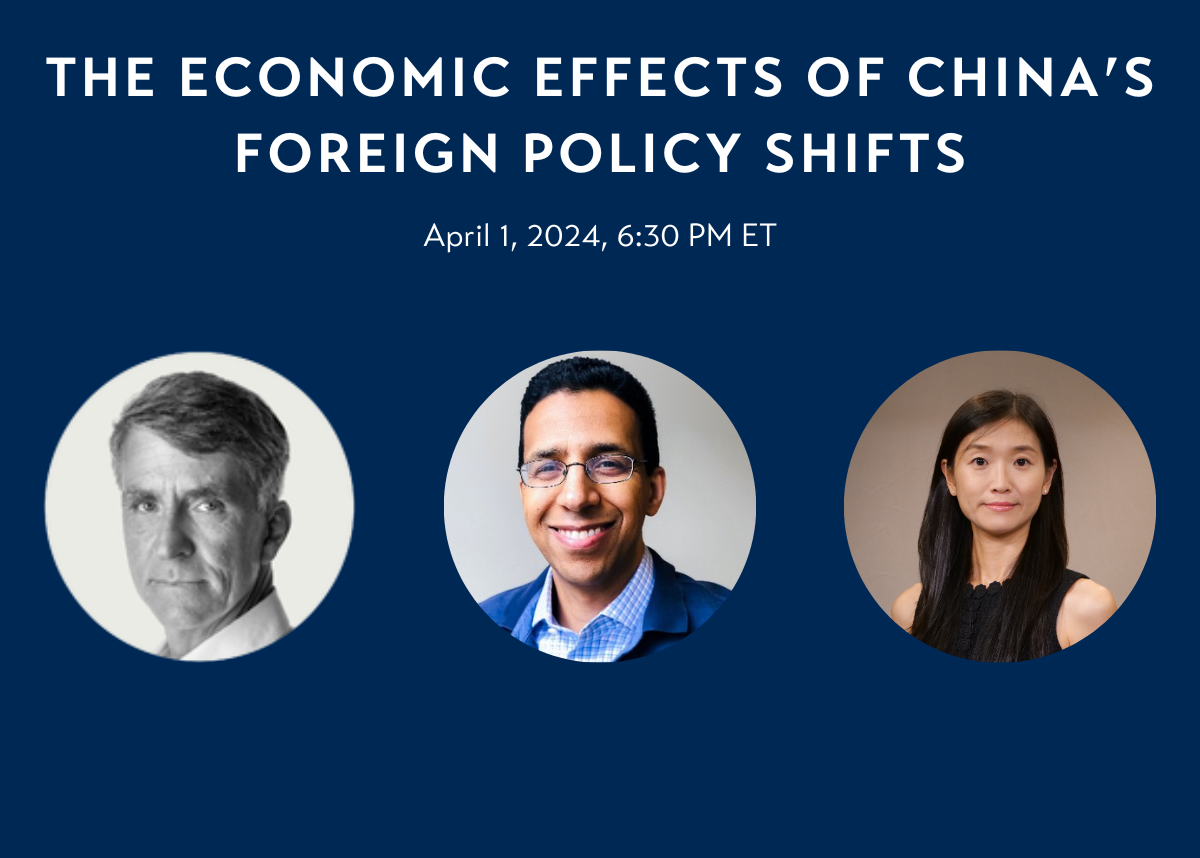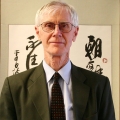The Economic Effects of China's Foreign Policy Shifts
VIEW EVENT DETAILS
How have recent changes in China's foreign policy strategy affected its economy and trade?
In the 2010s, China adopted a more coercive style of foreign policy known as "wolf warrior diplomacy." However, Chinese officials have recently sought to downplay this strategy. What impacts have these fluctuations had on China's ability to engage in the global economic fabric? What impacts have these changes had on China's trade, investment, financial markets, and its own ability to solicit foreign investment?
To answer these questions, join us for a conversation with Keith Bradsher, Beijing Bureau Chief for The New York Times; Zoe Zongyuan Liu, Maurice R. Greenberg Fellow for China Studies at the Council on Foreign Relations; and Dave Barboza, co-founder of The Wire Digital Inc., moderated by Orville Schell, Arthur Ross Director of the Center on U.S.-China Relations at the Asia Society, on April 1. Q&A to follow.
Dr. Zongyuan Zoe Liu is the Maurice R. Greenberg Fellow for China Studies at the Council on Foreign Relations (CFR). Her work focuses on international finance, sovereign wealth funds, industrial policies, and the geoeconomics of energy transition. Her regional expertise is in East Asia and the Middle East. Dr. Liu is the author of Can BRICS De-dollarize the Global Financial System? and Sovereign Funds: How the Communist Party of China Finances its Global Ambitions. She is an Adjunct Assistant Professor at the School of International and Public Affairs (SIPA) of Columbia University as well as a columnist for Foreign Policy. She received her PhD in international relations from Johns Hopkins University and is a Chartered Financial Analyst (CFA) charter holder.

Keith Bradsher is the Beijing bureau chief for The New York Times. Through most of the pandemic, he was the sole American correspondent still living and reporting in mainland China for any of the biggest American newspapers. He was part of the team that won the 2013 Pulitzer Prize for Explanatory Reporting for its coverage of the business practices of Apple and other technology companies. He joined The New York Times in 1989 and has previously served as bureau chief in Shanghai, Hong Kong and Detroit, and as a Washington correspondent and New York business writer.

Dave Barboza is the co-founder of The Wire Digital Inc., a New York-based news and data platform focused on China and global supply chains. Previously, Barboza was a longtime business reporter and foreign correspondent at The New York Times. In 2013, Barboza was awarded the Pulitzer Prize for international reporting “for his striking exposure of corruption at high levels of the Chinese government, including billions in secret wealth owned by relatives of the prime minister, well-documented work published in the face of heavy pressure from the Chinese officials.” He was also part of the team that won the Pulitzer Prize for explanatory reporting, for his coverage of Apple’s operations in China. Barboza joined The Times in 1997 as a staff writer. He moved to China in 2004 as a business correspondent, and then, from 2008 to 2015, was the paper’s Shanghai bureau chief.

Orville Schell (moderator) is Vice President and Arthur Ross Director of the Center on U.S.-China Relations at the Asia Society, and a former dean of the University of California, Berkeley, Graduate School of Journalism. Schell is the author of fifteen books, ten of them about China, and a contributor to numerous edited volumes, including The New Yorker, The Atlantic, The New York Times, The Nation, and The New York Review of Books. Schell worked for the Ford Foundation in Indonesia, covered the war in Indochina as a journalist, and has traveled widely in China since the mid-’70s.
Presented with:
